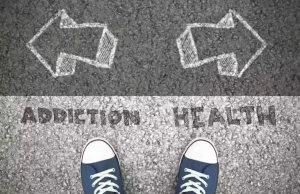
Common mental health conditions that co-occur with AUD are depressive disorders, anxiety disorders, trauma- and stress-related disorders, other substance use disorders, and sleep disorders. Studies show that people who have AUD are more likely to suffer from major depression or anxiety over their lifetime. When addressing drinking problems, it’s important to also seek treatment for any accompanying medical and mental health issues. Ideally, health care providers will one day be able to identify which AUD treatment is most effective for each person. These advances could optimize how treatment decisions are made in the future.
- So, giving up alcohol can help you to avoid these potentially deadly diseases.
- One of the unexpected benefits of giving up alcohol is that you may find yourself more productive than before.
- They may binge drink once or drink for a period of time before getting sober again.
- Acceptance- and mindfulness-based interventions increase awareness and acceptance of present-moment experiences.
- If you’re thinking about suicide, are worried about a friend or loved one, or would like emotional support, the Lifeline network is available 24/7 across the United States.
- Millions of people join support groups to help stop drinking and stay stopped.
What are the symptoms of alcoholism?
Remove all alcohol from your home or ask a friend or family member to do it for you. This includes beer, wine, and liquor, as well as products that contain alcohol such as rubbing alcohol and vanilla extract. Keep a list of emergency phone numbers on hand that includes contact info for your doctor, the police, a nearby https://ecosoberhouse.com/ hospital, and someone you trust. And consider joining a support group such as Alcoholics Anonymous. We’ll be able to tell you if your insurance provider is in network with an American Addiction Centers treatment facility. If you decide to get treatment, your doctor can recommend the type of care that you need.
Severe Symptoms
For some people, AUD has hurt their relationships, careers, health, finances, self-esteem, and other aspects of their lives. According to the National Institute on Alcohol Abuse and Alcoholism (NIAAA), recovery is a process that involves remission from AUD and quitting heavy drinking for good. Eating nutritious food, exercising, and getting enough sleep can help reduce some withdrawal symptoms, such as mood swings. If don’t have much of an appetite, you may want to take a multivitamin or drink a beverage high in electrolytes, such as a sports drink. If you take prescription medication, continue to take it as directed.
Symptoms of Alcohol Withdrawal: Timeline and Signs of Danger
You’ll soon start receiving the latest Mayo Clinic health information you requested in your inbox. Therapy combined with an AUD program tends to lead to a high recovery success rate. Thanks to generous benefactors, your gift today can have 5X the impact to advance AI innovation at Mayo Clinic.
- The prognosis (outlook) for someone with alcohol withdrawal depends greatly on its severity.
- If your doctor thinks you might be going through alcohol withdrawal, they’ll ask you questions about your drinking history and how recently you stopped.
- Explore Mayo Clinic studies testing new treatments, interventions and tests as a means to prevent, detect, treat or manage this condition.
- While the process may take several years, the outcome is a happier, healthier life where you have the freedom to fulfill your full potential.
- In fact, there are many treatment options available thanks to significant advances in medical and behavioral research over the past decades.
By avoiding alcohol, you’re taking a big step toward improving physical health. As you begin to notice those health benefits, you’ll likely feel more energized and inspired to keep up your progress. There are many benefits to giving up alcohol, both short-term and long-term.
How Long Does It Take to Detox from Alcohol?

If you are developing your own symptoms of depression or anxiety, think about seeking professional help for yourself. Remember that your loved one is ultimately responsible for managing their own illness. Couples and family counseling incorporates spouses and other family members in the treatment process and can play an important role in repairing and improving family relationships. Studies show that strong family support through Alcohol Detox family therapy increases the chances of maintaining abstinence (not drinking) compared with people going to individual counseling. Unhealthy alcohol use includes any alcohol use that puts your health or safety at risk or causes other alcohol-related problems. It also includes binge drinking — a pattern of drinking where a male has five or more drinks within two hours or a female has at least four drinks within two hours.

Alcohol addiction, also known as alcoholism, is a disease that affects people of all walks of life. Experts have tried to pinpoint factors like genetics, sex, race, or socioeconomics that may predispose someone to alcohol addiction. Psychological, genetic, and behavioral factors can all contribute to having the disease.
- When addressing drinking problems, it’s important to also seek treatment for any accompanying medical and mental health issues.
- Outpatient alcohol detox may be a good fit for people at low risk for severe withdrawal.
- You might run into obstacles along the way that tempt you to drink.
- Eating healthier helps your body heal from the effects of alcohol.
- You will want to understand what will be asked of you in order to decide what treatment best suits your needs.
- Research shows that most people believe that drinking can make them feel better.
History and Physical

For individuals with severe alcohol dependence, however, withdrawal symptoms can be more severe and may require medical attention. Although detoxing from alcohol at home can have benefits, the early stages of sobriety pose a dangerous risk for medical complications. Gradually tapering your alcohol use helps ease withdrawal symptoms and reduce alcohol cravings. Tapering increases the length of the detox process, but it might be better for you in the long run. To maintain homeostasis in the CNS, inhibitory signals from the GABAergic system are balanced by excitatory neurotransmitters such as glutamate.

